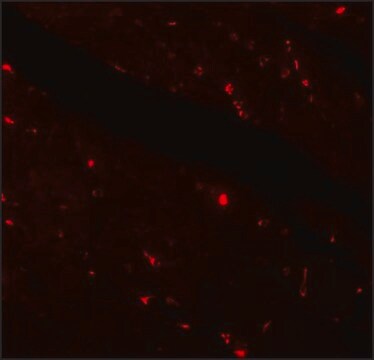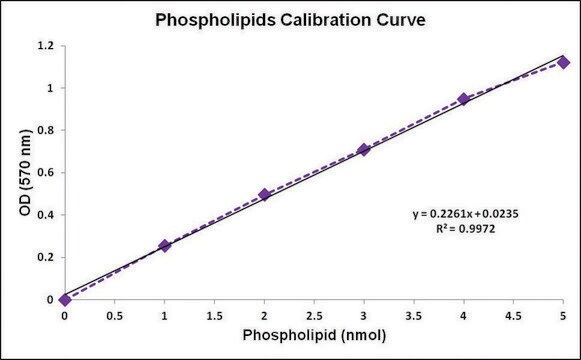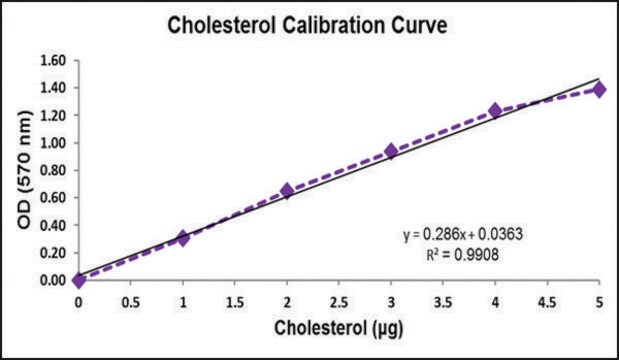MABN1807
Anti-Klotho Antibody, clone KL-234
ascites fluid, clone KL-234, from rat
Sinônimo(s):
EC: 3.2.1.31, KL
About This Item
Produtos recomendados
fonte biológica
rat
forma do anticorpo
ascites fluid
tipo de produto de anticorpo
primary antibodies
clone
KL-234, monoclonal
reatividade de espécies
mouse, human
embalagem
antibody small pack of 25 μL
técnica(s)
immunocytochemistry: suitable
immunohistochemistry: suitable
immunoprecipitation (IP): suitable
western blot: suitable
Isotipo
IgG2aκ
nº de adesão NCBI
nº de adesão UniProt
modificação pós-traducional do alvo
unmodified
Informações sobre genes
human ... KL(9365)
Categorias relacionadas
Descrição geral
Especificidade
Imunogênio
Aplicação
Neuroscience
Immunohistochemistry Analysis: A representative lot detected Klotho in Immunohistochemistry applications (Maltare, A., et. al. (2014). Monoclon Atib Immunodiagn Immunother. 33(6):420-7).
Immunoprecipitation Analysis: A representative lot immunoprecipitated Klotho in Immunoprecipitation applications (Maltare, A., et. al. (2014). Monoclon Atib Immunodiagn Immunother. 33(6):420-7).
Western Blotting Analysis: A representative lot detected Klotho in Western Blotting applications (Maltare, A., et. al. (2014). Monoclon Atib Immunodiagn Immunother. 33(6):420-7).
Immunocytochemistry Analysis: A representative lot detected Klotho in Immunocytochemistry applications (Maltare, A., et. al. (2014). Monoclon Atib Immunodiagn Immunother. 33(6):420-7).
Qualidade
Western Blotting Analysis: A 1:500 dilution of this antibody detected Klotho in 10 µg of human kidney tissue lysates.
Descrição-alvo
forma física
Armazenamento e estabilidade
Outras notas
Exoneração de responsabilidade
Não está encontrando o produto certo?
Experimente o nosso Ferramenta de seleção de produtos.
Código de classe de armazenamento
10 - Combustible liquids
Classe de risco de água (WGK)
WGK 1
Certificados de análise (COA)
Busque Certificados de análise (COA) digitando o Número do Lote do produto. Os números de lote e remessa podem ser encontrados no rótulo de um produto após a palavra “Lot” ou “Batch”.
Já possui este produto?
Encontre a documentação dos produtos que você adquiriu recentemente na biblioteca de documentos.
Nossa equipe de cientistas tem experiência em todas as áreas de pesquisa, incluindo Life Sciences, ciência de materiais, síntese química, cromatografia, química analítica e muitas outras.
Entre em contato com a assistência técnica







